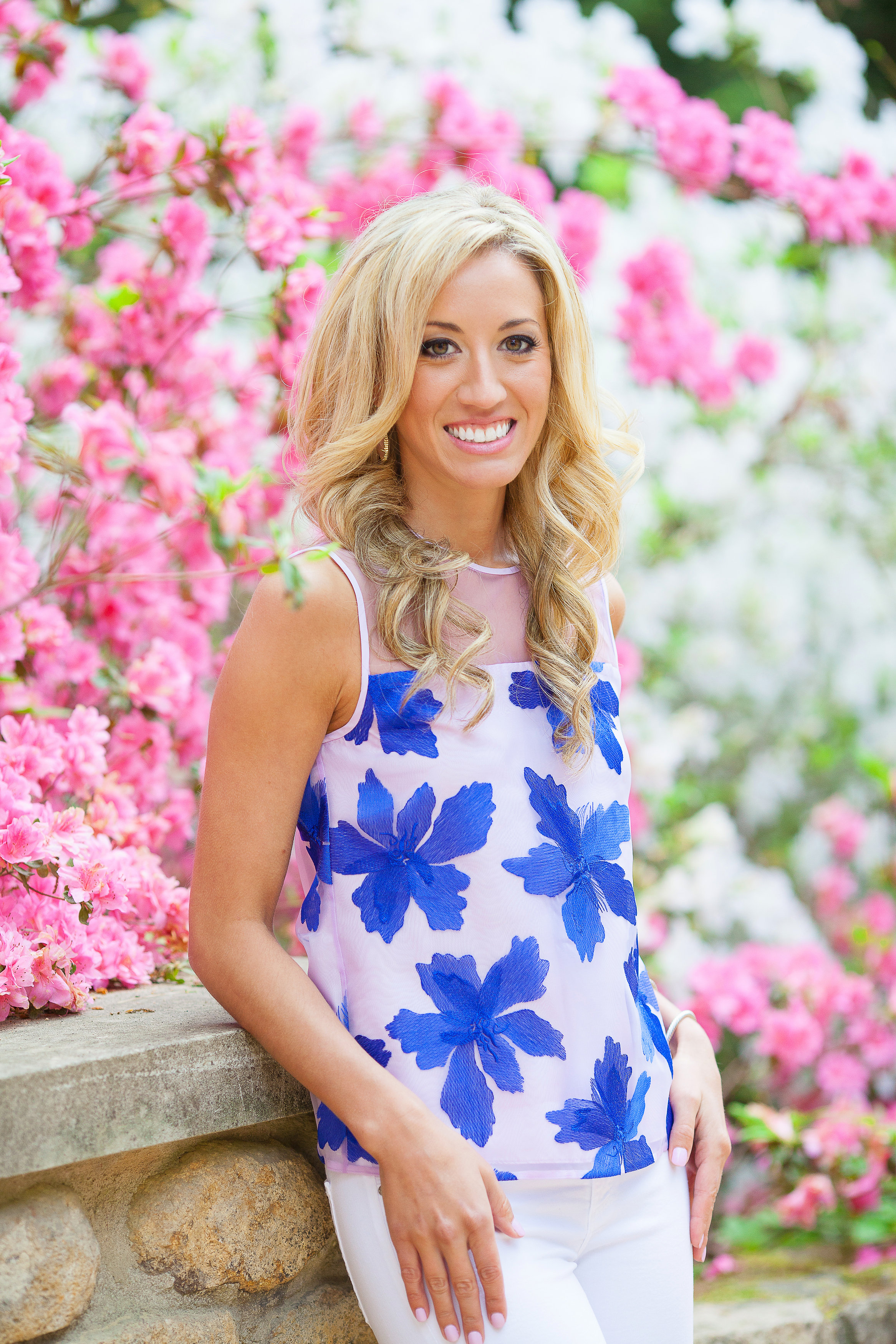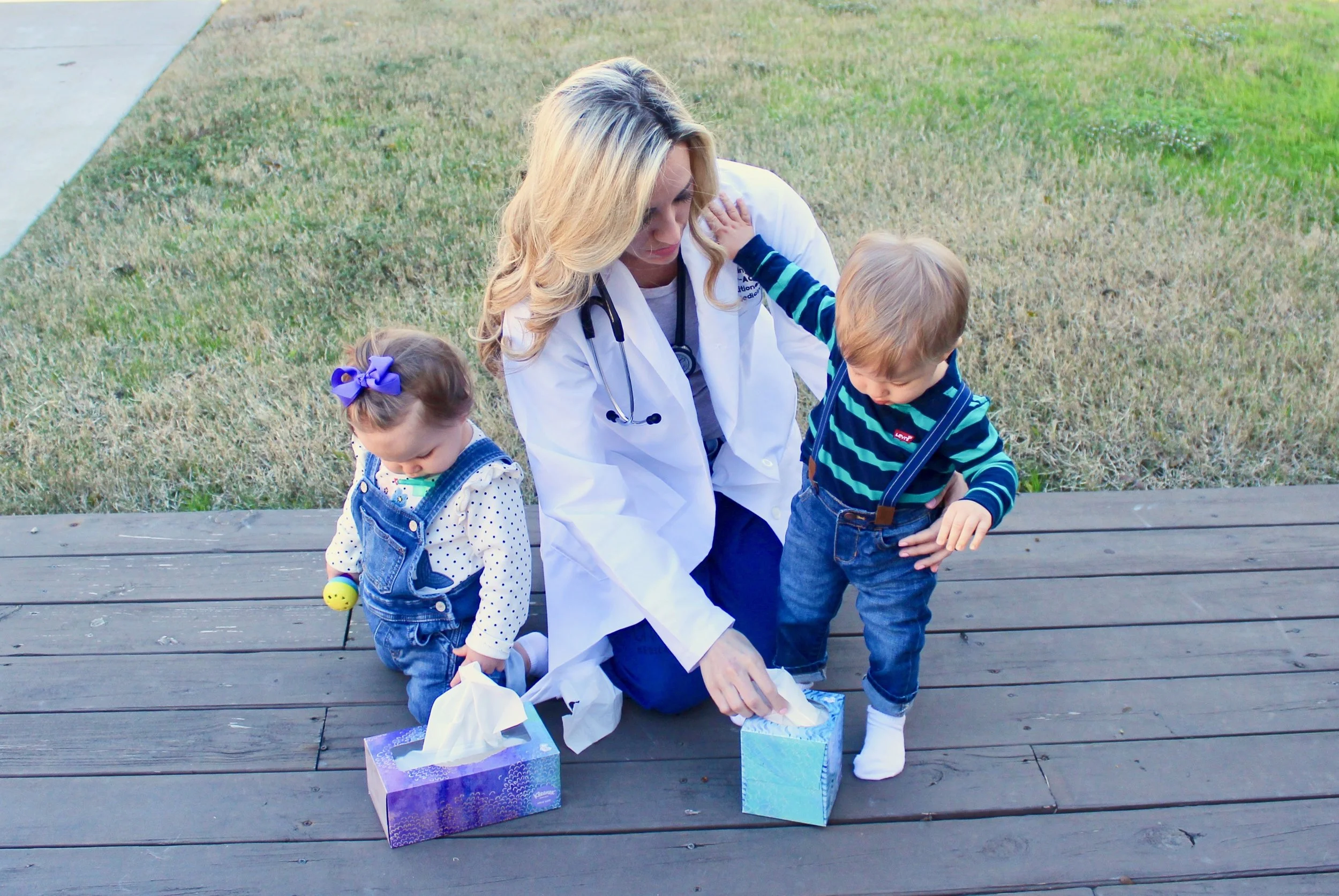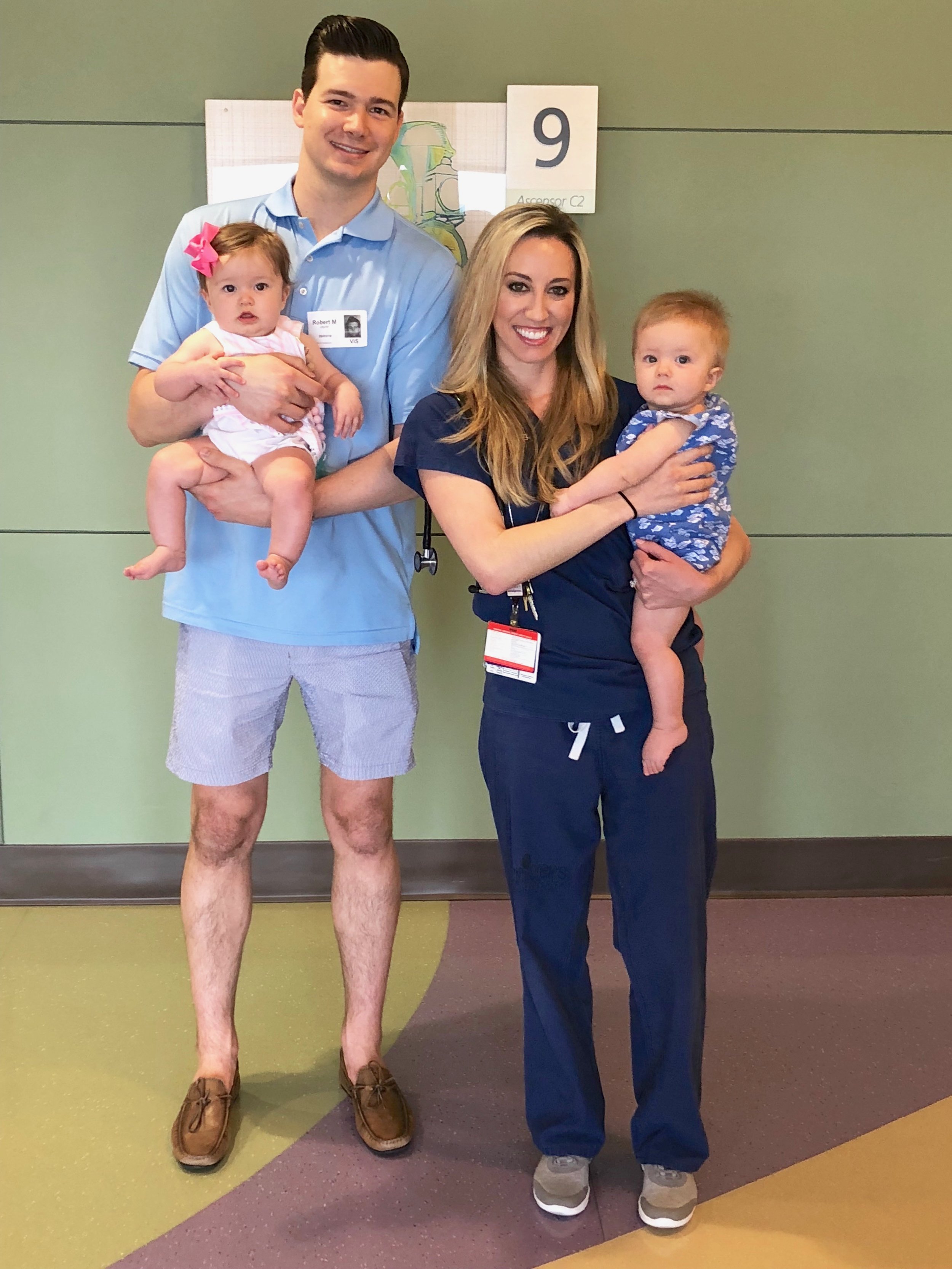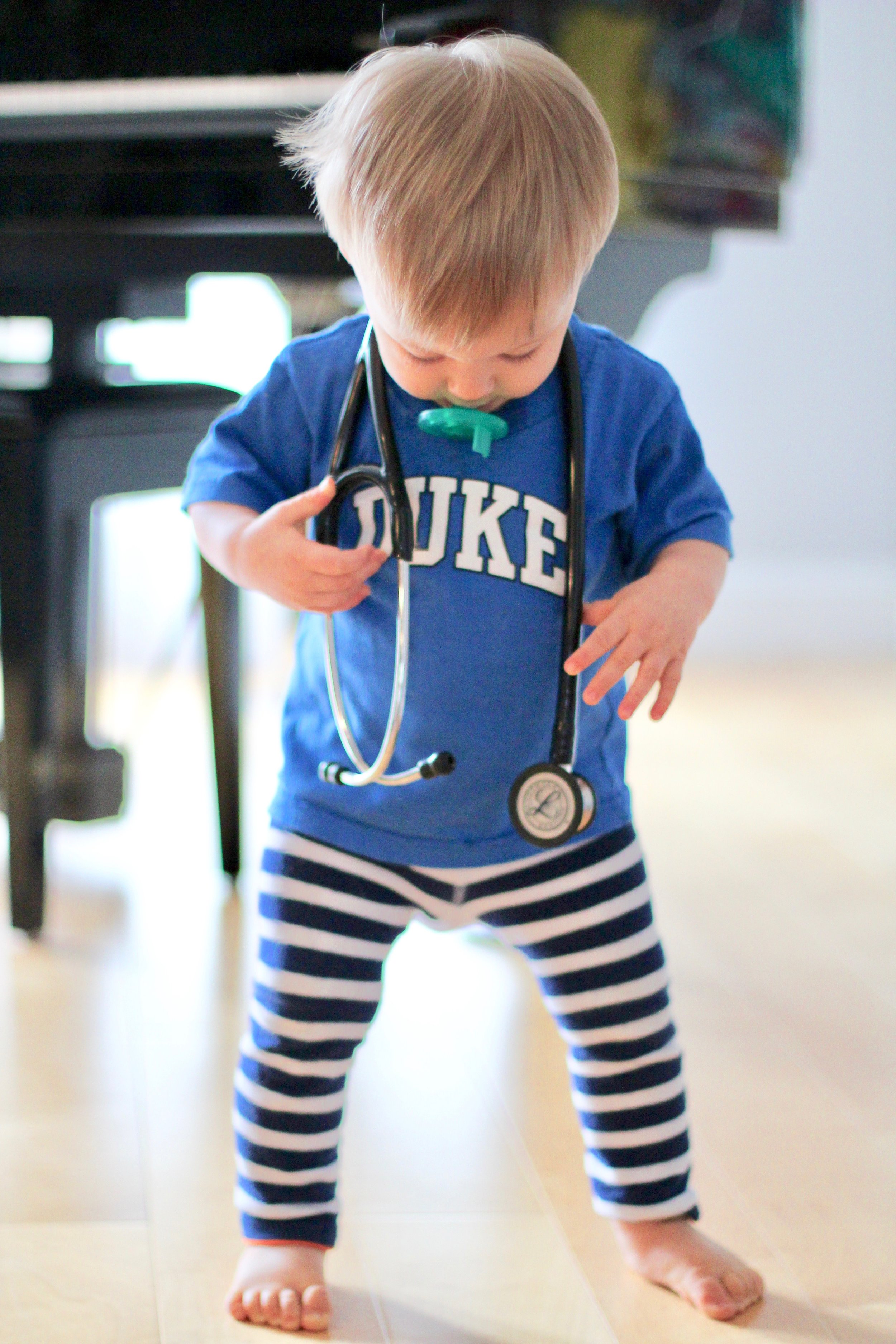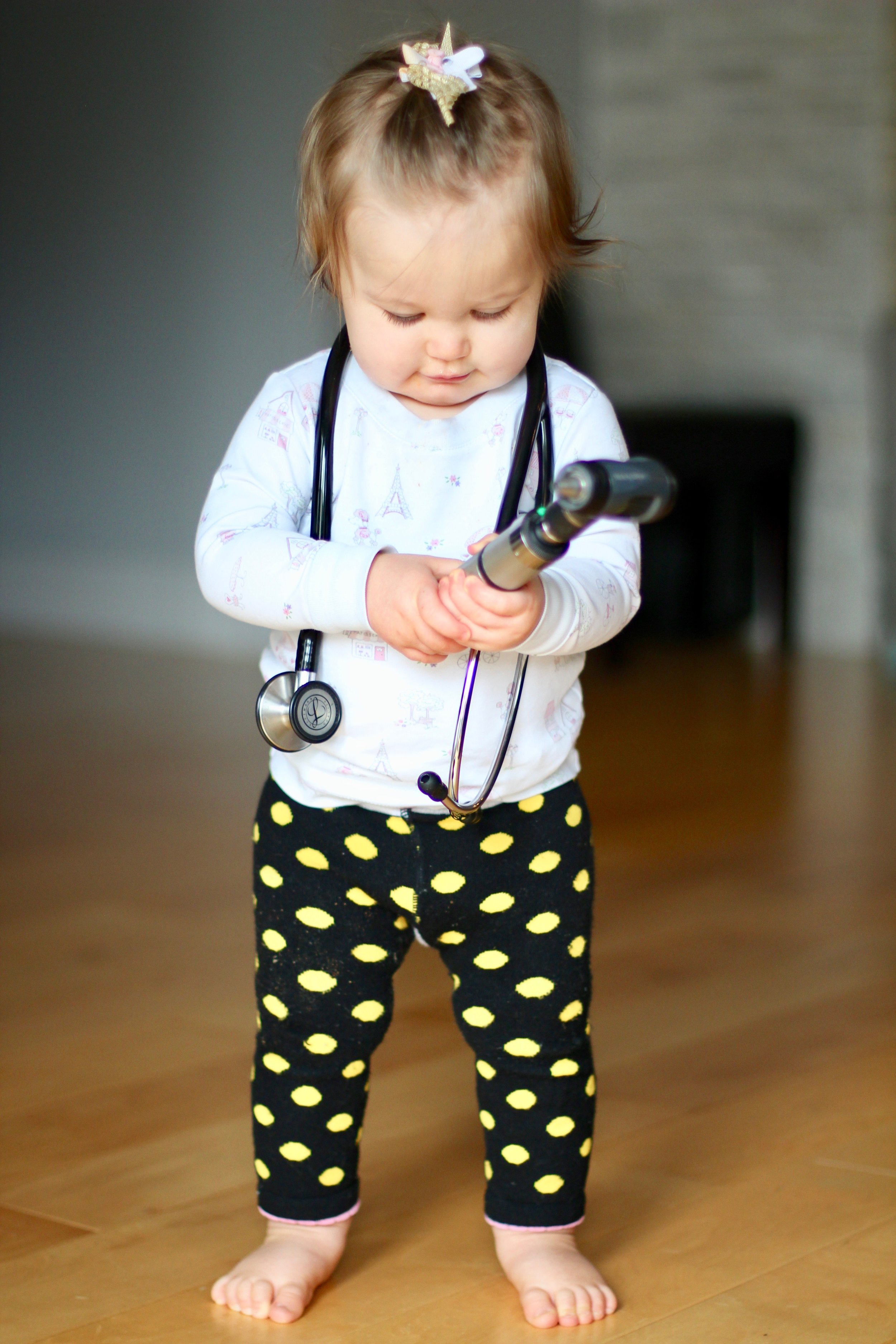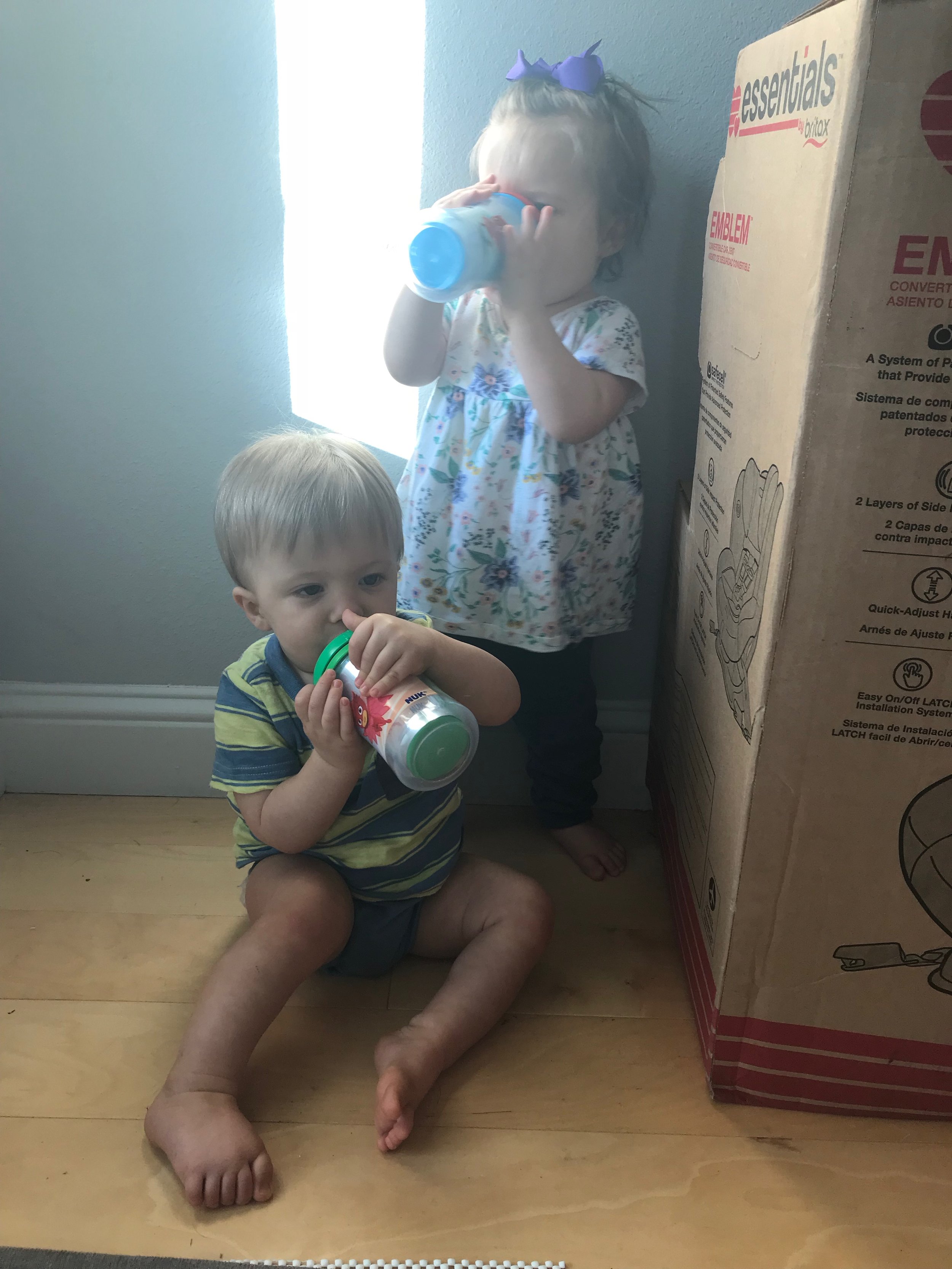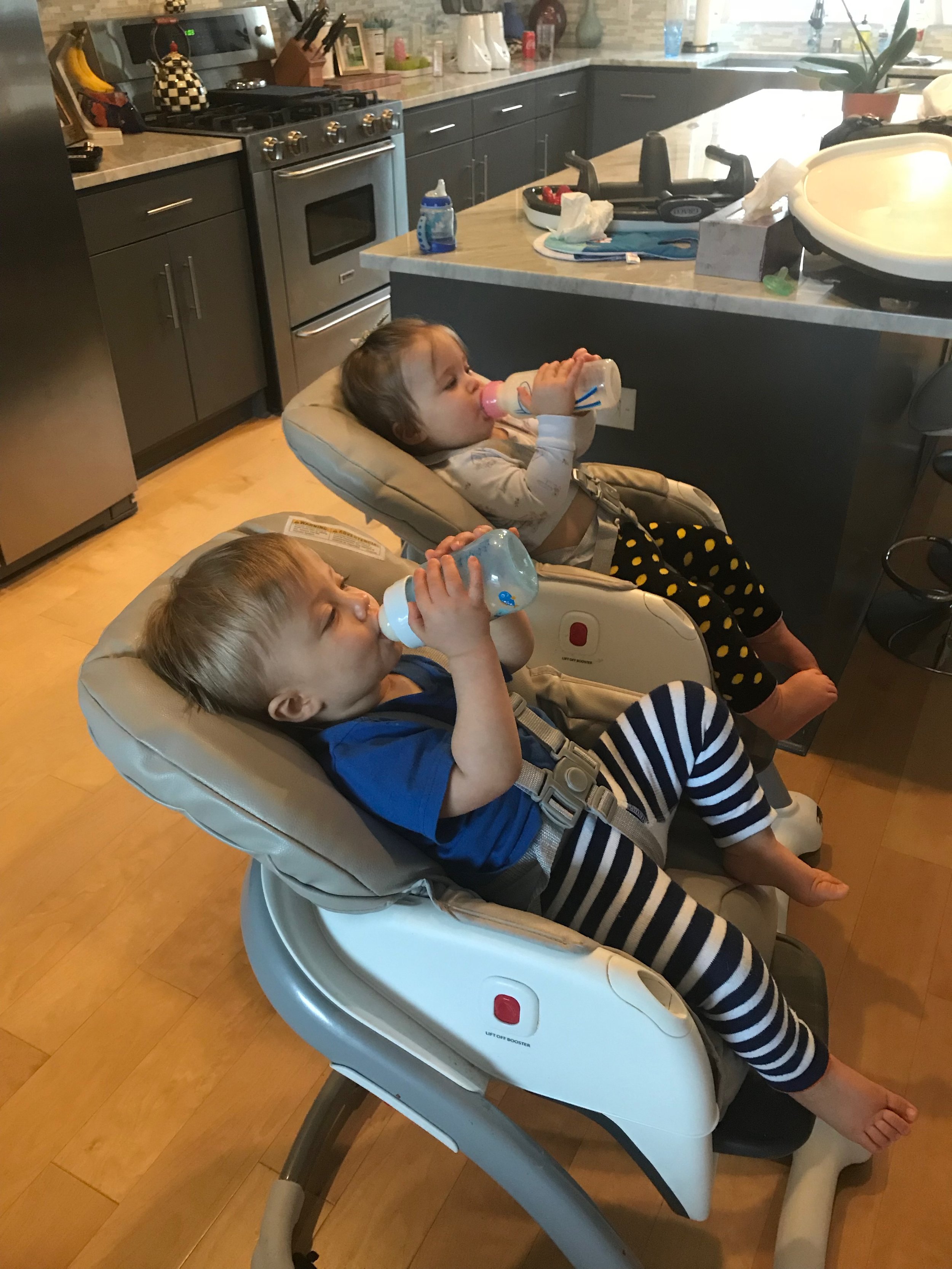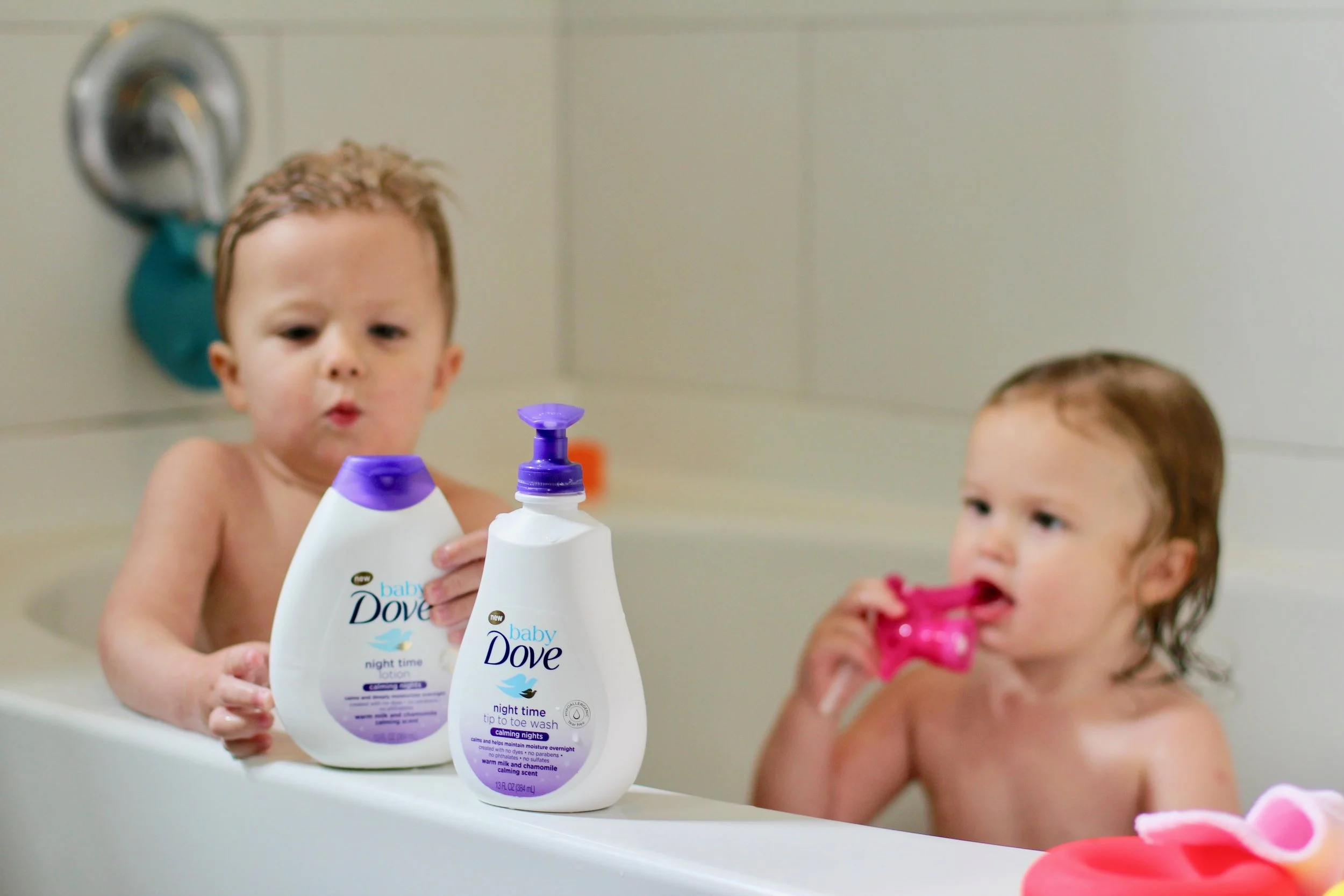How to Manage Your Twins' Colds at Home: 14 Tips From a Pulmonary NP
If you’re like me and you’ve done your BEST to prevent your little ones from getting a cold, but they somehow still snuck some germs into their systems….then this is for you! Babies and toddlers normally get 7-8 colds per year. That’s A LOT, isn’t it? So, it’s good to know what to do when the time comes — because it will come. It’s especially important when you’ve got twins that do everything together, including catching matching colds together!
Every year, without fail, friends and family often ask me for advice when cough and cold season hits (which is usually October-March of each year). Professionally, I’ve spent the past 7+ years working as a pediatric nurse practitioner in a pulmonology unit taking care of critically ill children. That said, I’ve seen how sick all the different viruses can make little ones. I manage kids in the hospital that require supplemental oxygen to tracheostomies to mechanical ventilators and everything in between. Luckily, my experience has lent itself to managing my own twins, Joules and Ames, at home whenever they’ve had colds.
My kids are not in daycare, but that doesn’t protect them from getting the funk that’s out in the world and public places. Right after their 1st birthday, both of my twins were struck with their first BAD cold. Guess where they caught it?
The pediatrician’s office!!!! Of all places.
We went for the twins’ 1-year check-up about 4 days before their symptoms started. I vividly recall seeing two sick brothers (twins, actually) coughing in the waiting room near us. I made a bet with myself that we would somehow accidentally take their bug home with us. And sure enough, we did. Within a few days, Joules and Ames had full-blown runny noses, coughs, fevers, significantly decreased appetites, and fewer wet diapers than normal. Luckily, I drew on my clinical knowledge and had the kids back on the mend about 1.5 weeks later.
Colds in children can last as long as 2 weeks. So, you’ll want to know how to manage these things at home to make your life (and theirs) slightly less miserable.
Here are 14 tips for managing sick twins with colds at home:
1) Just know that if one twin has it, the other one will, too.
You can’t really quarantine twins from each other. They’re bound to cross paths! Plus, there’s two of them and only one of you! Just accept that they’ll both get it (and maybe even you, too). Plus, it’s a good immune system exercise for them.
2) Increase fluids to prevent or correct dehydration.
When you have what we call “insensible losses” (meaning fluid losses you can’t really measure - such as fever or increased nasal drainage) or vomiting, diarrhea, or decreased appetite, then you’re more likely to become dehydrated. Stay vigilantly on top of offering fluids!
3) Run a humidifier in their room whenever they sleep.
Increasing the moisture in the air will help nasal and airway secretions remain soft and easier to move out. Dehydration is already more likely at this point as they’re probably not drinking as much as normal, which can further thicken secretions. With the extra humidity, you avoid what we call “mucus plugs” that can block airways and lead to increased work of breathing or respiratory distress.
4) Create a steam room as needed.
You can sit in a bathroom with a closed door while running a hot shower nearby to create steam to loosen secretions.
5) Saline drops to the nose 2-3 times per day as needed.
You can do this to thin the mucus in the nose. In case you haven’t done it before, here are some good instructions of how to properly instill nasal saline drops in an infant’s nose.
6) Suction their nasal secretions as needed.
An infant’s nasal passages are small, so it doesn’t take much to block them. If you can hear the nasal congestion or if you can see it, then try to suction it out to ease their breathing. I especially recommend doing this right before nap/bedtime and right before eating/drinking bottles. The better they can sleep and eat, the happier you’ll all be. Also, I prefer using a simple bulb suction like this one.
7) Tylenol or ibuprofen every 4-6 hours as needed for fevers and aches.
Use these OTC medications as directed by your children’s pediatrician. Keep in mind that ibuprofen can only be used in kids >6 months of age. If they’re over 6 months and with the permission of your children’s doctor, you could even alternate the two medications so that one of the two is being received every 2-3 hours.
8) AVOID ORAL COUGH SUPPRESSANTS IN KIDS <4 YEARS OLD.
This is a BIG one because not everyone knows it. Cough suppressants, such as Robitussin and Delsym, are NOT recommended in children under 4 years of age due to potentially life-threatening side effects. Read more about the FDA’s cautions against OTC cough and cold meds here.
9) Maty’s Baby Chest Rub in babies 3 months and up.
Maty’s chest rub is natural, safe, non-medicated, chemical-free and made of soothing fragrances including eucalyptus, lavender, and chamomile. You can apply it to their chest, neck, or feet and allow it’s gentle smells to ease the sniffles for a good night’s sleep.
10) Honey for kids > 12 months old.
Giving honey to kids can soothe sore throats and decrease coughing. However, be sure to NOT give it to infants <12 months of age given the risk of botulism (a disease that can paralyze the diaphragm) in that age group. For toddlers >12 months, here is a good home-made cough syrup recipe using honey and lemon!
11) Run a warm bath before bedtime.
Not only do baths typically relax children and improve their sleep, it can also soothe any body aches.
12) Rest.
13) Follow your child’s pediatrician’s recommendations!
14) Last but not least—because I couldn’t get through this post without saying it—ensure everyone washes their hands and gets their flushots!
As you’re juggling your sick twins, don’t forget to be on the lookout for any concerning changes during their illness. If your child experiences a fever >100.3, respiratory distress, wheezing, excessive coughing, inability to keep fluids or food down, unusual lethargy, earache, or anything else that concerns you from their baseline, then you should contact your children’s pediatrician or go to the Emergency Department as their symptoms could indicate something more serious.
Overall, do what you can to prevent spreading germs, but also remind yourself that not every virus is bad for your twins. They need to build those immune systems at some point! Here’s to hoping your twins are on the mend quickly. ;)
Disclaimer: This information reflects my personal experience and opinions as a twin mother and should not replace the advice of your child’s physician. Please consult your child’s doctor for official recommendations.
